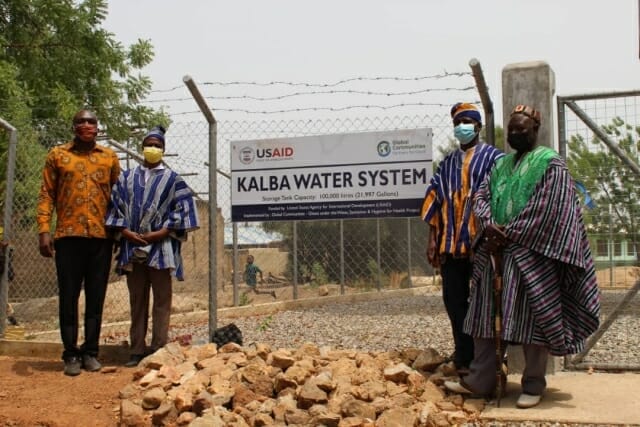News > Blog
Kalba Community Benefits from the USAID Small Town Water System Approach
Published 03/26/2021 by Global Communities

Traditional community-based rural water systems with their shallow wells and handpumps often do not provide sustainable water services. Pumps often break down and wells dry up; alternative water sources are frequently contaminated.
This was the situation in Kalba, Ghana, a farming community with about 4,500 residents in 520 households. Kalba had ten shallow wells (boreholes), seven with handpumps and three privately owned. Unfortunately, almost all of them dried up during the dry season and the hand pumps were in a deplorable state. The community turned to hand-dug wells, streams and dams, until they too dried up.
Kalba was a good candidate for a new approach to sustainable water services, the Small Town Water System funded by USAID Wash for Health Project.
Now completed, the water system comprises of two high yielding boreholes (deep wells) with an output of 568 cubic meters of water per day. The water is pumped to an elevated water storage tank that holds 100,000 liters of water. The water then travels along 11,400 meters of distribution lines, bringing water to a school, a health facility, six town standpipes, and 20 household connections.
One key change is the system is maintained by a Water and Sanitation Management Team that ensures the water system functions well. A social enterprise with a professional water management structure may come on board later to help in the management, sustainability and expansion of the system.
Communities reliant on shallow wells and handpumps often see these dry up and break down once the external partner leaves, thus the need for a new, higher level and more sustainable technology plus more professionalized management of the water services. Deeper wells with piped water distribution lead to development of new jobs in the community through professional water service providers controlled by the community.
On March 2nd, 2021 Kalba community, district officials, and Global Communities’ WASH for Health team gathered to celebrate the new water facility.




